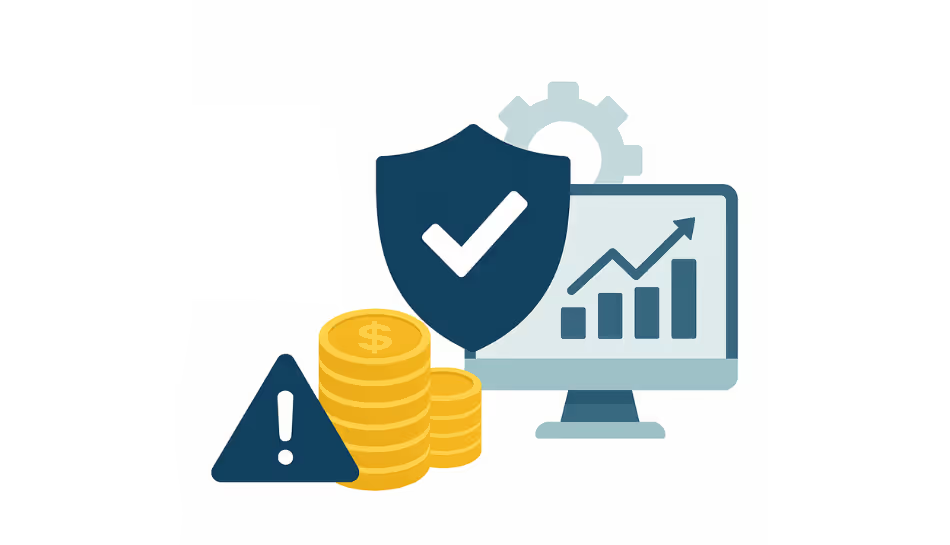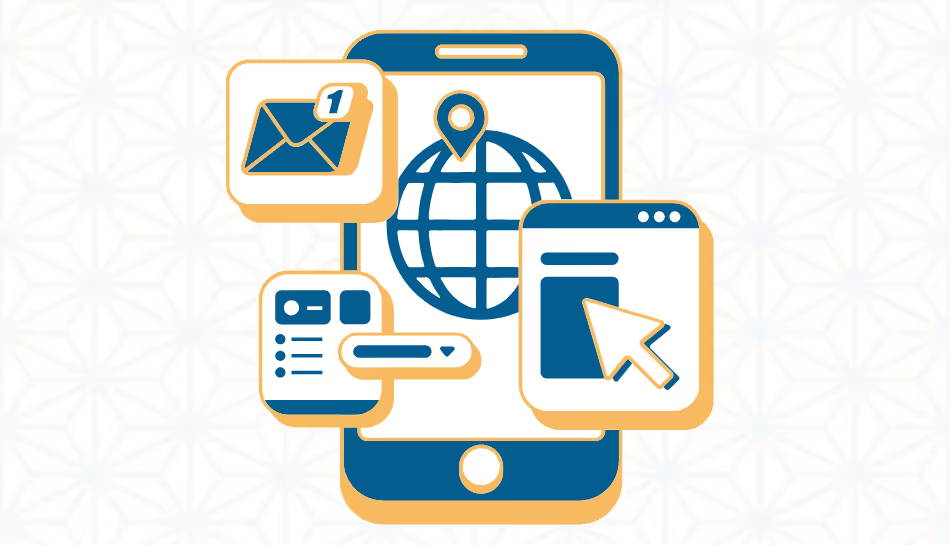
Running a business today means juggling a lot, inventory, finance, operations, customer service, payroll, and more. With so much going on, it’s easy for mistakes to creep in. A missed invoice, a duplicate order, or a stockout can quickly become an expensive problem.
That’s where ERP (Enterprise Resource Planning) comes in. It’s not just about making things faster or easier, it’s also about making your business safer.
Let’s explore how ERP software reduces financial risks for businesses, help streamline processes, improve data accuracy, boost security, and reduce business risks before they turn into costly issues.
1. Streamlining Processes = Fewer Mistakes
Without an ERP system, most businesses rely on a mix of spreadsheets, emails, manual entries, and standalone tools. The problem? Things get messy fast. Files go missing, updates get skipped, and employees work with outdated information.
ERP brings all your operations under one roof, inventory, sales, HR, accounts, and more. Everything runs on the same system, with shared data and real-time updates. That means:
- No more duplicate entries
- No miscommunication between departments
- Faster approvals and decision-making
When your processes are streamlined, your business becomes more organized, efficient, and less prone to errors.
2. Enhancing Data Accuracy = Better Decisions
Let’s say your sales team logs an order, but your warehouse doesn’t get the update. Or your finance department runs reports based on old data. These slip-ups aren’t just annoying, they’re risky.
ERP systems help everyone work with the same, up-to-date information. Orders, inventory levels, payments, and employee records are all updated in real time. You get accurate reports, faster insights, and clear visibility into every corner of your business.
And when your data is clean and current, your decisions are smarter, and safer.
3. Improving Security = Protecting What Matters
Sensitive business data, like customer information, salaries, supplier contracts, and financial records, needs protection. In smaller businesses, this data often lives in spreadsheets, emails, or unprotected folders, which is risky.
A good ERP system includes built-in security features:
- User access controls (so only the right people see the right data)
- Encrypted databases
- Audit trails that log every change
- Cloud backups to prevent data loss
Financial risk management with ERP systems ensures your business runs on secure systems designed to keep your most valuable information safe from leaks, hacks, and internal misuse.
4. Enabling Better Risk Monitoring = Spot Problems Early
Most risks don’t appear overnight. They start small, like a sudden spike in expenses, repeated late deliveries, or low-performing products. Without the right tools, these early warning signs are easy to miss.
ERP systems offer real-time dashboards, alerts, and custom reports that help you monitor operations constantly. You can:
- Spot delays in production or delivery
- Track cash flow or rising costs
- Monitor employee performance and attendance
- Flag low stock before it disrupts sales
This means you're not just reacting to problems… you're anticipating and preventing them.
Final Thoughts
Every business faces risks, but not every business is prepared for them. That’s why having the right systems in place makes a difference.
A good ERP system doesn’t just help you get more done, it helps you do it safely, accurately, and confidently. Whether you’re a growing startup or an established company, ERP helps you stay one step ahead by reducing financial errors, strengthening operations, and giving you better control over your business. In 2025, where change is constant and competition is fierce, risk-ready is business-ready. And ERP is how you get there.
Frequently Asked Questions:

